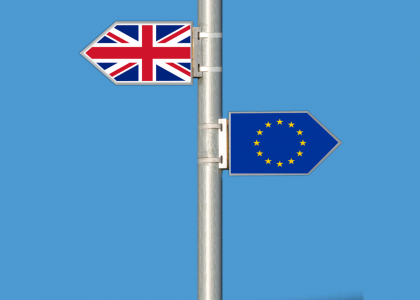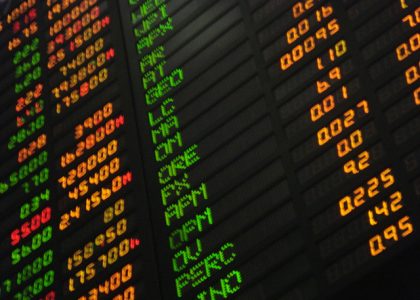Animal welfare legislation and regulations could potentially decline following the UK’s exit from the European Union. Activists argue that new trade deals will trade off animal rights for cheaper produce from countries such as the USA. Despite reassurances from certain MPs, there is pressure in Westminster for relaxing standards to make way for economic gain.
Since the announcement of the results of the Brexit referendum in June 2016, there has been much speculation and debate about what laws will be affected, and among them those to do with animal welfare which the EU has been instrumental in legislating and enforcing.
Issues surrounding animal welfare have become an important topic and there has been a lively debate on whether welfare will improve or worsen after our exit from the European Union. If we are to believe the ‘promises’ made by ministers, animal welfare should not be impacted. However, according to animal campaigners, we must be cautious to keep the government to account as the possibility of worsening animal welfare after Brexit could become a reality.
Currently 80% of animal welfare legislation in the UK, which amounts to around 40 individual pieces of legislation, comes from EU law. These 40 laws cover four main areas, including wildlife conservation, animals in medical research and domestic companion laws.
The most pressing and fundamental declaration made in EU law is that of Article 13 of the Lisbon treaty, that animals are ‘sentient beings’ and suffering and distress should be avoided as much as possible to maintain the welfare requirements of animals within the EU.
Trade deals threatening welfare
Leaving the EU could possibly mean that animal welfare legislation may be scrapped, and standards therefore lowered. Such legislation could be easily overlooked as other pressing and important policies are being discussed, such as the border with Northern Ireland and free trade agreements. However, it is important to me and other animal rights campaigners, that animal welfare remains an upmost priority for the happiness and care of animals, as well as the safety of people consuming animal products from the UK. With Brexit, comes a challenge. Will the government take this opportunity to increase standards, arguably an idealistic outcome, or is there a risk of lowering animal welfare for new trade deals?
A neglected topic?
In my opinion, it seems unfortunately likely that animal welfare will slip into the midst of the economic and political turmoil that Brexit has created. In 2017, the government rejected including the provision that animals are ‘sentient beings’ included in Article 13 in the EU Withdrawal Act, with the excuse of wanting to add the principle of sentience into wider legislation, which it has yet to do. Translating all the laws from the EU is proving time consuming and complex, considering other issues the governments has to deal with.
There has been support from several Westminster MPs, such as Michael Gove, who said in 2017 that “the government is committed to the very highest standards of animal welfare”. He rejects the possibility that trading with the United States would see a decline in food hygiene, welfare and overall quality. However, the US administration has already expressed that for a trade deal to be possible, the UK must eliminate its “unjustified sanitary restrictions”. The stories of bleached chickens, growth hormones and barbaric conditions on US farms does not feed me great comfort. But neither does leaving the single market and having no other stable trade deals.
People in the UK want cheap goods, and after Brexit, if a no deal occurs, consumer prices will likely increase due to higher tariffs and new regulatory checks. It seems as though welfare is likely to be traded off for cheaper goods, whether it is from the UK, or imported from other countries. A lot of people in the UK struggle to afford food and other goods currently; understandably, animal welfare can become a secondary thought if money is an issue.
Farmers in the UK are also worried about the possibility of a ‘no deal’. The farming industry receives over €3 billion in EU subsidies per year, which could all be stripped away. For farmers struggling to make ends meet, welfare could be an obvious cost saving opportunity. This however, is not what UK farmers want as the producers are proud of their high animal welfare standards, something which the UK government is trying to support.
Economics over morality?
The RSPCA, a well-known animal rights organisation and insider pressure group, advances that Brexit could offer the UK the opportunity to increase animal welfare, given that it will not be bound by European animal welfare laws. However, if it is not economically sensible in the aftermath of Brexit and we need enter free trade negotiations with the US, is it really likely to happen? It is all dependent on leadership. Now that Theresa May has stepped down from her position as Prime Minister, Boris Johnson or Jacob Rees-Mogg type politicians may end up leading the Conservative party. It is likely in this context, that animal welfare will decline, as they tend to favour economics over morality. For instance, Rees-Mogg has said that he is fine with chlorinated chicken and declared support for a US trade deal.
It must be acknowledged that scaremongering breeds fearful rumours surrounding Brexit that may never materialize. A spokesperson for the Department of Environment, Food and Rural Affairs stated that: “We have been clear that we will not lower our high food safety and animal welfare as a result of any future free trade agreement”. However, we have all learnt to not always trust politicians’ words. Depending on the outcome of the Conservative leadership context, the future government could be heading straight towards the USA and its chlorine, synthetic hormones and appalling animal abuse.
Harriet Francis





